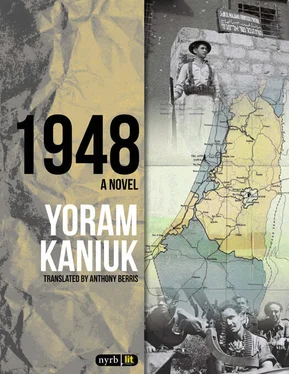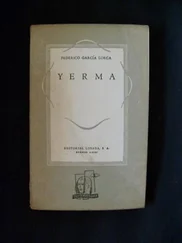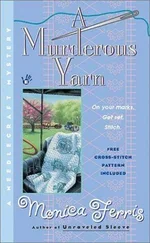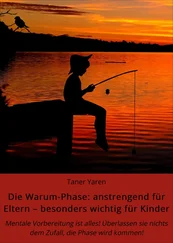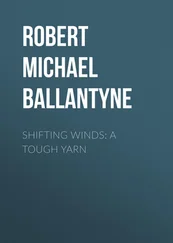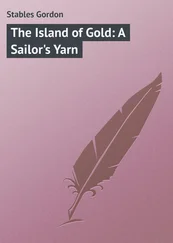I swallowed a rancid sardine but who noticed things like that, I drank some wine and thought what would happen if we had to go into battle and I’m here and didn’t know about it, but everything passed quietly. We sang Passover songs, they had Haggadahs from Germany with pages in which you could slide a piece of card and see Moses’s crib in the bulrushes. We sang what we remembered. They and I remembered the same tunes but not all the words.
Someone knocked on the door. A young man came in with the dog and moved from person to person kissing them, and he was apparently half blind because he kissed me too. From a satchel he carried he took a few biscuits and a bottle of water he’d picked up from a water seller on the way. The dog looked scared, its tail drooping, but a dim, wise hope flared in its eyes. The wife gave it half a biscuit and its tail pricked up and wagged and stroked us, it had hair as soft as cotton wool. A shell exploded not far away. The windows rattled but that did not stop our weeping. We sat and cried. We sang, “Who Knows One” with made-up mistakes; if God hadn’t died in Bergen-Belsen he’d have died on hearing the words. We sat reclining as it is written and wept on the rivers of Babylon in unbuilt Jerusalem. That was the most beautiful moment I experienced in that fucking war.
We lived in the barn at Kiryat Anavim for a while and afterward under the vast roof of the cowshed, which perhaps was empty but maybe not completely. I later lived in a big tent at the entrance to the kibbutz. Every now and then I’d find myself sitting in the dining hall opposite a jerk who kept a pack of Latif cigarettes in his shirt pocket. It opened from the top. Inside it he kept an Arab’s ear. Each time he was asked he said he’d harvested it in a different place. When he took the ear out in the dining hall to chew on it the way you chew gum, there were girls who fled and that way he got a bit more food. It wasn’t right for us not to reproach him but we were tired and hungry, and we went out to some battle every night, and we’d get one or two cups of water a day for drinking and washing, and there were some who even washed their clothes with one cup of water.
Once a truck with water arrived, I’ve no idea from where. We set up a field shower and it was crowded. The dirt that washed off people’s bodies looked like black stones and it moved like jelly. The smell was heavy. I tried to wash myself in the little water there was, and then we all stood naked looking for a sliver of soap, and because I can’t stand naked men or women near me, I hid inside myself. Even when I took a crap I didn’t go with everyone into a field but sat by myself and tried to hide, and the smell was pungent and hard. That’s the way it was.
Before we went out to battle we’d say to the kibbutz oldsters, Dig the graves as fast as you can because we’re on the way. There was this sentence we’d repeat: “The officers gave the order to go and the privates went straight to hell.” In between, we tried to live.
A tall, tanned woman wearing shorts and boots, with a distant, empty expression on her face, was walking along a kibbutz path and stopped by me and called me by my name, and after a few words she invited me to her room. A scrubbed room. It looked like it had been licked clean, and that was when there was no water. Empty orange boxes, and books too, which served as a table and chairs, and on the walls there was a painting by Schur and another by Käthe Kollwitz. She took out an old record from somewhere that told me it was a Deutsche Grammophon issue, which I knew from my father’s collection by the tiny rim protruding above its grooves, and it was wrapped in rags.
She said she knew who I was and had asked about me, and that her husband was an Austrian violinist from Graz whose hand had been injured when they fled or something, I don’t know exactly, but even during the flight, in the forests, he’d wrapped the record up in rags and protected it, and afterward they’d reached Haifa on the Knesset Yisrael , and from there to Cyprus, and then secretly back to Palestine, and he’d even protected the record when standing in line for the toilet on the boat. He said he’d once stood in line for five hours, all the while clasping the record to his chest, and he said that the boat’s commander was surprised by the fact that the man with the shattered hand wouldn’t let go of the record. He invited him to his cabin and gave him a tangerine. And the woman explained that there, aboard that boat, was God’s luminosity. She said that the commander told him that if he reached Palestine he had to go up to Jerusalem — where the commander, was born — and go up to Mount Scopus and see the most glorious sunrise in the world.
The woman was standing and I was sitting, and she said, After a year in Cyprus he managed to escape but didn’t have the hands to play again. He walked from Haifa to Tel Aviv with the record, and British policemen stopped him, and he told them in Hebrew that he didn’t speak any language, and they took pity on him and laughed, and said, What’s that you’ve got there, and he showed them, and they laughed again and let him go, and he reached Tel Aviv. He asked where the Tel Aviv Museum was and reached Rothschild Boulevard, and Partos, his childhood friend from Vienna, was rehearsing a Mozart quartet there. Partos introduced him to your father, Kaniuk the museum director, and your father asked him where he was going, and he said to Jerusalem, and your father said, The city’s under siege. He said he was going because the commander of the boat that brought him had said that he had to see the sunrise in Jerusalem. Your father said he thinks perhaps he’s got a son someplace there.
The man left the museum and somehow got to Jerusalem. He went up to Mount Scopus, saw the sunrise, and a car stopped by him with a man in it who got out to piss, and he saw the poor guy standing there with his record in the middle of nowhere, and said he was going to Kiryat Anavim and that he’d take him there. At the kibbutz office the man told them that the commander of the boat he’d come on had sent him.
The woman stopped for a moment, looked at me, and I saw a small tear wending its way from her eye and she said, I was on dining-hall duty. He came in and was so polite, starving, but polite. And what was there to eat? I saw how he took the dry bread and the leaves and the quarter sardine and he seemed to be the hungriest man I’d ever met. He ate ravenously, trembling, but politely. They gave him custard and he said that Amnon, the boat’s commander, told him that they eat fresh fruit in Eretz Yisrael. I told him I was sorry, but there’s none left. There was a kind of enigmatic, curious otherness in him. He was his own man. We got married two days later, without a rabbi. Just a few friends on the lawn. We broke a glass too. He wanted to fight but he was told that he hadn’t been taught how to fight in Bergen-Belsen, so they let him escort a convoy. Later he said he’d heard he had a cousin in a place called the Etzion Bloc in the West Bank, and I told him not to go, it was too dangerous, and tried to dissuade him, but he insisted and said he had to because the cousin is the only relative he’s got in the world.
She’d wept and told him that she loved him, and remember, things like that were left unspoken back then. He told her that she is the only love he had in his life. And he said he was alone. That his whole family had perished. The woman looked at me and went on with her story: At night as I slept, he got up, and I saw him getting up and didn’t let on. I don’t remember how, but I heard he’d reached Kfar Etzion. Two days later somebody brought me a letter he’d sent, it was in German and I didn’t understand it. One of the kibbutz members read it to me and I knew it was a kind of eulogy. There was a big assault at the time, there was a massacre at Kfar Etzion, and my husband was burned alive.
Читать дальше
